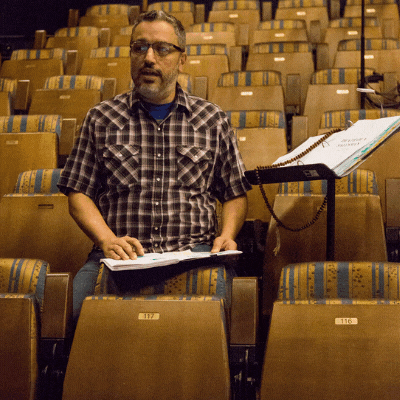A successful theatre performance is the result of a lot of hard work. Between talent, production, and front-of-house staff, there could be over 100 people involved in the creative process depending on the scope of production. However, someone who isn’t familiar with performing arts may have a basic understanding of the usual players that bring a production to life. But true theatre buffs and those with performing arts degrees know about all of the unsung jobs needed behind the scenes. If you’ve wanted to pursue a career in theatre but want to do something unexpected, here are a few jobs you can get with a theatre degree or certification but may not know about.
Company Manager
A theatrical Company Manager is an administrator for a company or production. They provide logistical oversight and act as the liaison between the company and the general manager. Some of their responsibilities include managing payroll for cast and crew, distributing payment to vendors, scheduling rehearsals, serving as a point of communication between the cast and director, and arranging living accommodations for cast and crew. Company Managers also schedule costume and wig fittings and design budgets. Thus, they have a hand in every aspect of production.

Get Your Start: Company Managers are senior-level roles. Most get their start in production. But, it’s common for Company Managers to have work experience as stage managers. Don’t be afraid to head to your local community theatre and volunteer as a stagehand.
Development Coordinator
Development Coordinators are crucial to non-profit theaters and arts organizations. Their primary goal is to secure financing for the theatre. They also secure funding through grant writing and fundraising appeals, organizing fundraising events, and building relationships with existing and prospective donors. Depending on the size of the theatre, Development Coordinators may work full-time or part-time.
Get Your Start: The role of Development Coordinator is entry-level. Research non-profit theaters or companies. Determine which ones you’re interested in. Then inquire about internship opportunities.
Dramaturg
Dramaturgs has extensive knowledge of operas, musicals, and plays. They research historical information to ensure the accuracy of production. Dramaturgs also work alongside playwrights, directors, and artistic directors to provide details and guidance that better understand the material. Some of the facts they provide include the life of the original librettist or playwright, what could have inspired them, and any cultural or political events of the time that may have impacted the production.
Get Your Start: Many theaters and companies offer paid literary apprenticeships for graduates with bachelor’s degrees or certification.
Movement Coach
Every motion and gesture is essential when performing in a theatre production. Actors and dancers have to ensure that a patron at the back of the theatre has as immersive of an experience as someone sitting in the front row. Because of this, movement coaches distill emotions into physical language and teach that language to performers.

Get Your Start: The job market for Movement Coaches is growing. However, there is not a defined path for students interested in the field. Movement Coaches tend to have education and experience in dance or choreography.
Music Copyist
Music Copyists are responsible for preparing written music prior to performances. They receive sheet music after it’s reviewed and edited by the arranger, composer, music director, and orchestrator. They are also responsible for proofreading the sheet music, separating it by instrument, and distributing the finalized copies to the ensemble and orchestra. In revivals, Music Copyists transcribe older music into written form.
Get Your Start: A theatre degree or certification in music composition, music theory, or songwriting is typically a requirement to gain a job as a Music Copyist. You can also set yourself apart with an apprenticeship under an experienced Music Copyist.
Props Master
Almost everything on stage — from a couch to an ashtray — is a prop. A Props Master is responsible for researching, acquiring, and monitoring all props for the production. They also have to find props within budget and ensure their historical accuracy and authenticity.
Get Your Start: Pursue a certification or theatre degree with a concentration in production and design if you’re interested in working as a Props Master. In addition to this, you can volunteer as a stagehand at your community theatre to gain work experience.
Set Designer
Also called a Scenic Designer, Scenic Designers create sets for productions. This can include set pieces, backdrops, furniture arrangement, and stage shape. They work closely with the Artistic Director to ensure that the stage represents their creative vision. Set Designers may have a background in carpentry or technical set work such as lighting.

Get Your Start: Stage Designers need experience in production and design. Build a portfolio showcasing work from college or community theatre productions or apply for an apprenticeship.
If you want to learn about in any of the theatre jobs above or one of the other many careers in the performing arts, check out Yellowbrick’s Ultimate Performing Arts Career Guide.




